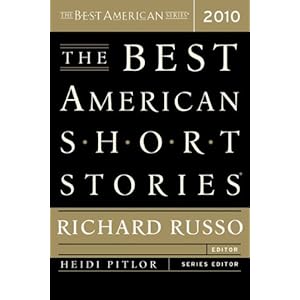
Digital Photography Secretsby David Peterson Click Here! How to
UnemployMent is the highest it's been in three decades. The housing mortgage fiasco has contributed to the dramatic increase of homelessness. Tent cities across the United States are growing and are populated not only by the chronically homeless but also with educated and middle class citizens who have lost their Jobs and/or lost their homes.
The whole of homeless veterans is growing, too, with 200,000 currently "on the streets." As the incidence of Post Traumatic Stress Disorder (Ptsd) is growing in recognition, rehabilitation is not retention up with the need. When these walking wounded return home from Iraq and Afghanistan, the stigma associated with Ptsd as well as the lack of compassionate and therapeutic care abandons them to find their own way down a hopeless street. Many commit suicide. Others join the chronically homeless.
American Stories
Reminiscent of the Great Depression and the era following the Vietnam War, the stories of America's middle and working class and its returning veterans are resurfacing as exercises in discontentMent and defeat although the heart of America still beats with hope.
Like John Steinbeck's Grapes of Wrath and Travels with Charlie, and more recently like the stories of Charles Kerault, there are stories to be told about the American population who are daily struggling to live and re-establish their dreams. They are important stories to be told, not only to re-ignite compassion and understanding but, like post 911, to inspire America's heart as a nation to work together in assuring a quick salvage to a state of greater strength, mutual reserve and decreased greed.
Books about the general plan of homelessness have been written such as the three-volume Homelessness in America, by Robert Hartmann McNamara, published in 2008. However, to my knowledge, no books have yet been published focusing on personel stories, especially from 2009. The dramatic increase in homelessness as a ensue of the economic stepping back is still too new.
You-Tube holds a great whole of videos about tent cities and the field of homelessness but does not communicate the depth of each personel story. Print articles may appear in local papers, however only the ensue of homelessness is typically covered rather than the personel stories. When written with a constructive objective rather than simply reporting, these stories could help rebuild lives.
With regard to homeless veterans, the branch of Veterans AffAirs recognizes the issue but cannot keep up with the influx. According to National Adjutant Arthur H. Wilson, "We saw thousands of Vietnam veterans who finally became homeless, and we may be facing a new national emergency with the veterans who served in Iraq and Afghanistan." In 2006, one in four homeless were veterans. That whole has climbed.
As the trend in increased unemployment and homelessness lags the projected economic recovery, there are many stories to be discovered and told in 2009. As this trend continues, the whole of population who know or who have a degree of relationship to the issue is dramatically increasing.
The current coverage of the issue of homelessness in relationship with the economy takes national attention. Good Morning America has it AmeriCan series to highlight population who are taking performance to help others. Each day, snippets of stories are seen in the media. However, few are in depth.
The publication and distribution of a series of books can take an important step. It can record, in greater depth, these unseen and unheard stories of individuals who have experienced the worst and who survive. It can contribute a written history giving their plight a sense of purpose by calling the nation together to help one another. In the end, hopefully, it will contribute time to come generations inspiration and pride in their heriTAGe rather than shame.
As a source of inspiration for time to come generations as well as a sobering history to ground the nation's leaders in the reality experienced daily by the people, this book series is important. These stories can generate a classic image of our nation by having not only the heart but also the courage to take performance by seeing and telling these stories.
America's Stories 2009 - The Courageous citizen Facing Unemployment and Homelessness
Digital Photography Secrets by David Peterson Click Here!
Visit : USB Battery Charger & Accessories Deals Dehumidifier Made in Usa Cartier Mens W20072X7 Puppies
![The Best American Short Stories 2010 (The Best American Series (R)) [Paperback]]( http://ecx.images-amazon.com/images/I/417-fWjfIYL._SL500_AA300_.jpg )




